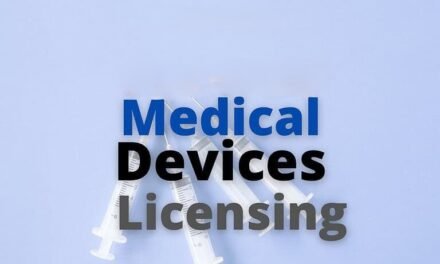
Health Ministry Soon to Amend Recruitment Rules in CDSCO by Assistant Drugs Inspector

The Union Health Ministry has announced plans to amend the recruitment rules for the Central Drugs Standard Control Organization (CDSCO), particularly for the position of Assistant Drugs Inspector. This is part of ongoing efforts to streamline and strengthen the regulatory framework for drugs and medical devices in India. The amendment aims to improve the operational efficiency of CDSCO, enabling it to better fulfill its role in regulating the drug and medical device sectors.
Key Aspects of the Proposed Amendments to the Recruitment Rules:
- Modernization of Roles and Responsibilities:
The amendment is expected to modernize and align the roles and responsibilities of the Assistant Drugs Inspector with the evolving demands of the pharmaceutical and medical device industries. As the sector grows and diversifies, the role of a Drugs Inspector has become more complex, requiring a broader skill set, including technical knowledge, regulatory expertise, and an understanding of global standards. - Enhanced Qualifications and Experience:
One key feature of the proposed amendments is likely to include more stringent qualifications and experience requirements for the post of Assistant Drugs Inspector. These changes could involve a deeper focus on specialized knowledge in fields such as pharmacology, regulatory affairs, medical device regulations, and analytical testing methods. This would help ensure that candidates are better prepared to handle the complexities of the modern pharmaceutical and medical device industries. - Emphasis on Regulatory Knowledge and Quality Control:
As India moves towards achieving higher standards in drug and medical device regulation, the new recruitment rules will likely place a greater emphasis on regulatory knowledge and experience in quality control. This aligns with the government’s goal of improving the efficacy and safety of drugs and medical devices in the market. - Professional Development and Training:
The amendment may also include provisions for ongoing professional development and training for Assistant Drugs Inspectors. This would ensure that inspectors are up to date with the latest regulations, technologies, and best practices in drug and medical device inspection and enforcement. - Increased Accountability and Efficiency:
By updating the recruitment rules, the Ministry aims to ensure that Assistant Drugs Inspectors can carry out their duties with greater accountability and efficiency. This includes inspecting manufacturing facilities, reviewing product compliance with standards, and ensuring that drugs and medical devices in the market meet the required quality standards. - Capacity Building for the Growing Pharmaceutical and Medical Device Sectors:
With the rapid growth of the pharmaceutical and medical device industries in India, the Health Ministry recognizes the need for a larger, more skilled workforce within CDSCO. The proposed amendments to the recruitment rules are aimed at improving the capacity of the organization to effectively regulate this expanding sector, ensuring consumer safety while fostering innovation. - Improvement of CDSCO’s Regulatory Reach:
The changes in recruitment rules are also expected to help CDSCO expand its regulatory reach across the country. With the increasing complexity of both the pharmaceutical and medical device industries, an enhanced workforce will enable CDSCO to cover more inspections, enforce regulations more effectively, and address potential safety concerns quicker.
Impact of the Amendments:
- Improved Regulatory Oversight:
The amendments will lead to better-qualified personnel at CDSCO, enhancing the regulatory body’s ability to carry out effective inspections, quality control assessments, and compliance checks. This, in turn, will improve the safety and efficacy of drugs and medical devices in India. - Strengthened Enforcement of Quality Standards:
With more knowledgeable and skilled inspectors, there will be improved enforcement of quality standards, reducing the chances of substandard or counterfeit drugs and medical devices reaching the market. This will help to safeguard public health and ensure that patients are receiving the best possible treatment options. - Boost to Pharmaceutical and Medical Device Industry:
By enhancing the capacity of CDSCO, the amendment will support the growth of the pharmaceutical and medical device industries. A well-regulated environment encourages both domestic innovation and foreign investment, as companies seek to operate in a transparent and compliant market. - More Efficient Market Approval Processes:
The amendment could help streamline the market approval process for new drugs and medical devices by ensuring that CDSCO staff are well-trained and capable of efficiently managing applications, inspections, and regulatory reviews. - Strengthened International Collaboration:
The Health Ministry’s push to upgrade the qualifications and expertise of its workforce will also strengthen India’s role in international regulatory forums. India will be better equipped to meet global standards, paving the way for increased exports of medical devices and pharmaceutical products to international markets. - Attracting Talent to the Sector:
The changes in recruitment rules will likely make the position of Assistant Drugs Inspector more attractive to top talent in the fields of pharmacology, biotechnology, and regulatory affairs. This will contribute to the development of a highly skilled workforce in India’s regulatory landscape.




























